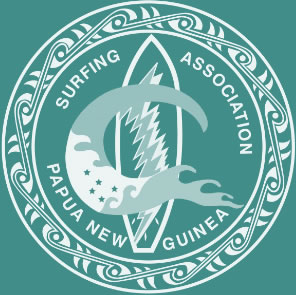Get The Latest Infomation On Game Fishing in PNG
A charter on the PNG Explorer is not just a surf trip in a tropical paradise. It can be a learning experience into a world with customs and habits quite unlike your own. For travellers on their first visit to PNG, it can be confronting to see the red-stained teeth as many PNG locals chew and splatter a deep red coloured spittle.
This spray is the combination of the betel nut or ‘buai’ as it’s called in Tok Pisin. The betel nut is from the areca palm, a tall slim trunked tree that is common throughout tropical Asia and the Pacific. Not technically a ‘nut,’ the fruit is de-husked from its bright green exterior and inside, the heart of which is aroundthe seed, which for reference is about the size of a macadamia nut.
The seed will combine in the chewer’s mouth with a bite of a mustard stick (from a pepper plant) doused in powdered lime. The result is the chemical reaction between all three components, to give the red colour and distinctive smell that will remind most of PNG. For a first-timer, it takes some practice as a misplaced dab in your mouth can burn from caustic powdered lime.
This powdered lime made from coral, such as staghorn or Acropora, is made by coastal communities throughout PNG. The coral is dried, then cooked and left to sit for weeks until it crumbles easily. It is then sieved to produce the bright white powder. This manufacture provides a steady income stream with these bags of powder selling from 50 toea or 25 cents.
Betel nut once reserved for cultural events for only the ‘big men’ nowadays, it’s a very social pastime, passed down through the generations from men and women to their older kids. It would be our equivalent to meeting with friends for a coffee. You may even see teething babies given the husked outer layer for relief, and this husk also makes handy teeth cleaning tool – to remove the red stains post chew.
A common sight is groups of people loitering under trees or at shopfronts having a chew and a chat. The ground islittered by red pools of spit and shells of the discarded nuts. Locals shout out, “buaikam pastime,””bring me a buai!” While they freely throw mustard sticks and old jam jars filled with powdered lime to share.
At the central market, there will be betel nut on sale en masse. Also, scattered throughout the small town of Kavieng, you would find pop up sellers, selling only nuts, mustard, and lime. The price point is very affordable though prices are driven by supply, and often the origin of the nut.
Officially betel nut is a psychoactive drug, which promotes the overall feeling of well-being and peacefulness. According to the WHO, it’s popular with 10-20% of the world population and ranks fourth place behind nicotine, alcohol, and caffeine. Ask someone why they chew, and their answers may vary from relaxation and reduce stress, to suppress hunger. In contrast, others state that it energizes them, and, of course, it is addictive.
The active ingredient in a betel nut is called arecoline, and this acts on the brain receptors as does nicotine. So aside from being highly addictive, it’s also carcinogenic. Hence, PNG has one of the highest rates of mouth and stomach cancers in the world.
Patients will commonly arrive with mouth lesions much too late for remedy, often paired with severe tooth decay and painful stomach ulcers. Unfortunately, treatment is challenging in a country with a stressed healthcare system, drug shortages, and a lack of specialist medical professionals.
Even the ardent chewers recognize that they need to encourage a more responsible chewing habit for hygiene and better health. Old habits die hard when it’s as routine as having a cup of tea, the fact that it grows in your back yard, and vitally, it provides a steady income stream. It is hard to educate in preventative health when it supports so many on a day to day basis. The future is the hope that younger generations will choose not to chew, as they have seen the effects on parents and grandparents. And they will restrict it in kids instead of encouraging it.
Keen to be more than a spectator on your holiday maybe try a betel nut, but prepare for the overwhelming urge to spit, and just try to do that as well as the locals. In whatever fashion you manage your efforts will not go unnoticed, and memorable friendships will no doubt be made.


